I’m no mechanic, but I know a good deal when I see one, and ENA ignition coils have my attention. After wrestling with engine misfires and sluggish starts in my old Ford F-150, I decided to give these budget-friendly coils a shot.
Spoiler alert: they delivered. If you’re tired of coughing engines or shelling out big bucks for OEM parts, ENA coils offer a compelling mix of performance, durability, and affordability.
In this article, I’ll share my experience, break down the pros and cons, compare ENA to other brands, and toss in some maintenance tips to keep your engine humming. Trust me, you’ll want to consider these coils for your ride.
My Journey With ENA Ignition Coils
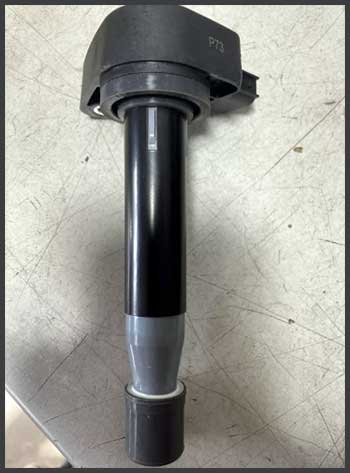
Picture this: my 2006 Ford F-150, once a trusty steed, started acting like it had a bad cold.
It coughed, sputtered, and occasionally refused to start without a long crank.
The check engine light was practically winking at me.
My mechanic pointed to the ignition coils as the culprit, and I winced at the thought of dropping hundreds on OEM replacements like Motorcraft or Denso.
That’s when I stumbled across ENA ignition coils on Amazon, priced at a jaw-dropping $105 for a set of eight.
For context, a single Motorcraft coil can cost $80.
I was skeptical—cheap parts often mean cheap quality—but the thousands of positive reviews convinced me to roll the dice.
Installing them was a breeze.
I’m no gearhead, but with an 8mm socket and about 30 minutes in my driveway, I swapped out all eight coils. The ENA set came with dielectric grease, which made the process even smoother.
Right away, my truck felt like it had a new lease on life. The idle was smooth as butter, the misfires vanished, and my fuel mileage ticked up noticeably—about 2 MPG better on my daily commute.
I’ve been running these coils for over a year now, through scorching summers and freezing winters, and they haven’t skipped a beat. The lifetime warranty gave me extra peace of mind, though I haven’t needed it yet.
What stood out most was how ENA coils seemed tailor-made for my Ford. They fit perfectly, no modifications required, and the included boots and resistors were a nice touch. I even kept my old Motorcraft coils as backups, but they’re gathering dust in the garage.
My only gripe early on was a slight hesitation during hard acceleration, but a quick check revealed I hadn’t applied enough grease to one coil’s boot. Once I fixed that, the performance was flawless. For a budget-conscious car owner like me, ENA felt like hitting the jackpot—affordable without sacrificing reliability.
What Are Ignition Coils and Why Do They Matter?
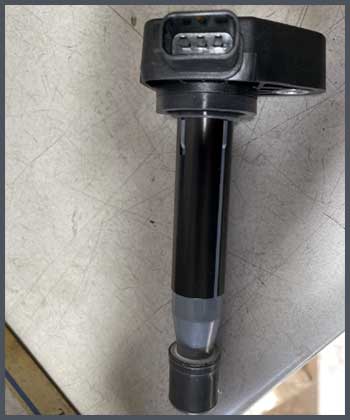
Before I get into the nitty-gritty of ENA coils, let’s talk about what ignition coils actually do. Think of them as the heart of your engine’s ignition system.
They take the low-voltage juice from your car’s battery—usually 12 volts—and transform it into a high-voltage spark (up to 30,000 volts) that your spark plugs use to ignite the fuel-air mix in the engine.
Without a good coil, you’re looking at misfires, poor fuel economy, or even a car that won’t start.
I learned this the hard way when my truck started acting like it was auditioning for a horror movie with all its stuttering and shaking.
ENA coils, made by Aceon-Bright, Inc., are designed to meet or exceed OEM standards, which is a fancy way of saying they’re built to keep your engine happy without breaking the bank.
They’re compatible with a wide range of vehicles, especially Fords, Hondas, and Nissans, and they’re engineered to handle everything from daily commutes to off-road adventures.
But are they really as good as the pricier brands? Let’s break it down.
The Pros of ENA Ignition Coils
- Affordability That Doesn’t Skimp on Quality
I’ll start with the biggest draw: ENA coils are dirt cheap compared to OEM options. A set of eight for my V8 F-150 cost me $105, while a single Motorcraft coil can run $80-$100. That’s a no-brainer for anyone on a budget.
But here’s the kicker—cheap doesn’t mean junk. These coils use high-quality copper wire and epoxy resin, which ensure solid conductivity and durability. After a year of use, I haven’t had a single failure, and the lifetime warranty means I’m covered if something does go wrong.
- Easy Installation for DIYers
If you’ve got a wrench and a bit of patience, you can install ENA coils yourself. I did it in my driveway with basic tools, and the included dielectric grease made sealing the boots a snap. The coils are designed to fit like OEM parts, so there’s no need to wrestle with modifications.
For someone like me, who’d rather save a few hundred bucks than pay a mechanic, this was a huge win. Even if you’re not handy, a shop will charge minimal labor since it’s such a quick job.
- Wide Compatibility
ENA coils work with a ton of vehicles—Fords, Hondas, Nissans, Acuras, you name it. I was impressed by how many makes and models they cover, from my 4.6L V8 to smaller engines like the 1.7L Acura EL.
This versatility makes them a go-to for anyone with multiple cars or a mixed fleet. I even recommended them to a buddy with a Nissan Altima, and he’s had the same smooth experience.
- Reliable Performance in All Conditions
Whether it’s a blistering summer day or a freezing winter morning, ENA coils hold up. I’ve driven my truck through 100°F heat and -10°F cold, and the coils haven’t flinched.
They’re built with corrosion-resistant terminals and shock-resistant housing, which means they can handle vibrations and extreme temperatures without breaking a sweat. My truck’s idle is still rock-steady, and I haven’t seen the check engine light since the swap.
- Improved Fuel Economy and Power
After installing ENA coils, I noticed my truck was sipping less gas. I went from about 15 MPG to 17 MPG on my daily commute, which adds up over time.
The engine also feels peppier, with better throttle response and no more stuttering during acceleration. It’s not like I turned my F-150 into a racecar, but the difference is noticeable, especially on long highway drives.
The Cons of ENA Ignition Coils
- Occasional Misfires in Rare Cases
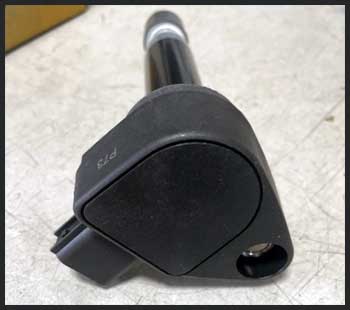
While ENA coils are generally reliable, they’re not perfect.
Some users, including me initially, have reported slight misfires under heavy load, like towing or aggressive driving.
In my case, it was due to improper greasing of one boot, which I fixed easily.
But a few online reviews mention persistent misfires, especially in high-performance engines.
If you’re pushing your car to the limit regularly, you might want to stick with OEM brands like Denso or Bosch for extra peace of mind.
- Questionable Longevity Compared to OEM
ENA’s lifetime warranty is great, but some folks question how long these coils will last compared to pricier brands. My set has held up for over a year, but I’ve seen reviews where coils failed after 10,000-20,000 miles.
OEM coils like Motorcraft often last 100,000 miles or more, so ENA might not match that longevity. That said, at $105 for eight, I can afford to replace them a few times and still come out ahead financially.
- Mixed Quality Control
While my experience was stellar, some reviews point to inconsistent quality control. A few buyers reported receiving coils with poor rubber castings or visible manufacturing flaws.
I didn’t have this issue, but it’s worth inspecting your set when it arrives. The lifetime warranty helps, but dealing with returns can be a hassle, especially if you’re in a pinch.
- Not Ideal for Every Vehicle
ENA coils shine for mainstream brands like Ford and Honda, but they’re not universal. Some niche or high-end vehicles, like certain BMWs or Lexuses, might need specific OEM coils for optimal performance.
If your car is picky or heavily modified, double-check compatibility before buying. I got lucky with my F-150, but always verify fitment with your vehicle’s VIN or model details.
Tips For ENA Ignition Coils
- Apply Dielectric Grease Properly
One of the biggest lessons I learned is that dielectric grease is your friend. ENA includes a packet with their coils, and you should use it generously on the coil boots to prevent arcing and corrosion.
I made the mistake of skimping on one coil, and it led to a slight misfire. Slather it on, and you’ll avoid headaches. If you run out, grab some from any auto parts store—it’s cheap and essential.
- Check Connections Regularly
Every few months, pop the hood and make sure the coils are snugly connected. Vibrations can loosen them over time, especially if you’re driving on rough roads. I give mine a quick check during oil changes, and it takes all of two minutes.
A loose connection can cause misfires or trigger that dreaded check engine light, so stay proactive.
- Pair with Quality Spark Plugs
ENA coils work best when paired with good spark plugs. I used NGK iridium plugs with mine, and the combo has been rock-solid. Cheap plugs can wear out faster and stress the coils, leading to premature failure.
Spend a little extra on plugs from a reputable brand—it’s worth it for the smoother performance and longer coil life.
- Store Spares Properly
If you keep extra coils as backups (like I do with my old Motorcraft set), store them in a cool, dry place. Extreme heat or moisture can degrade the rubber boots or internal components. I keep mine in a sealed plastic bin in the garage, and they’re as good as new.
This is especially important if you live in a humid or coastal area where corrosion is a concern.
- Monitor for Warning Signs
Keep an eye out for symptoms of coil trouble, like rough idling, misfires, or a drop in fuel economy. My truck started acting up again recently, but it turned out to be a dirty air filter, not the coils. Still, catching issues early can save you from bigger problems.
If your check engine light comes on, get the code read at an auto parts store—it’s usually free and can pinpoint a failing coil.
Comparing ENA To Other Brands
- ENA Vs. TRQ Ignition Coils
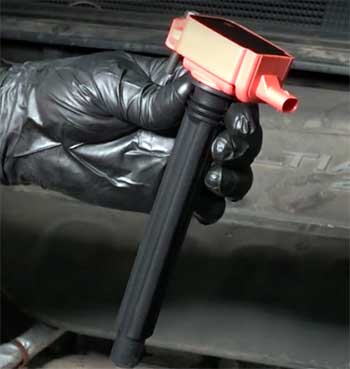
When I was shopping for coils, TRQ caught my eye as another budget-friendly option.
Priced around $80-$120 for a set, TRQ coils are in the same ballpark as ENA’s $105 for eight.
I haven’t used TRQ myself, but I dug into forums and reviews to see how they stack up.
TRQ coils are popular for vehicles like Jeeps and Chevys, and users praise their easy installation and decent performance for the price.
However, I found more complaints about TRQ’s longevity—some users reported failures within a year, especially under heavy use.
ENA’s lifetime warranty gave me more confidence, as I didn’t want to risk replacing coils again soon.
If you’re on a tight budget and your car is TRQ-compatible, they’re worth considering, but ENA’s reliability and warranty make it my top pick.
- ENA Vs. NGK Ignition Coils
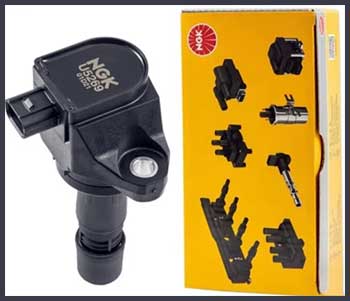
NGK is a name I trust, especially since I’ve used their spark plugs for years.
Their ignition coils, often priced at $50-$80 each, are a step up from budget brands like ENA.
NGK coils are known for their precision engineering, delivering consistent sparks even in high-RPM scenarios, which makes them a favorite for performance vehicles like Hondas or Subarus.
I considered NGK for my F-150, but the cost for eight coils would’ve been over $400—way more than I was willing to spend.
ENA’s coils matched NGK’s performance in my daily driving, with smooth idling and better fuel economy.
For casual drivers like me, ENA gets the job done at a fraction of the price, but NGK might be better for enthusiasts pushing their engines hard.
- ENA Vs. Delphi Ignition Coils
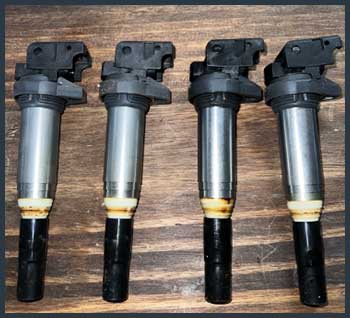
Delphi coils strike a nice balance between OEM quality and aftermarket pricing, typically costing $40-$60 per coil.
They’re a go-to for GM vehicles and are praised for their high voltage output and low emissions, which can improve engine efficiency.
I looked into Delphi for my truck, but ENA’s lower price and wider compatibility won me over.
Delphi coils are solid, with fewer reports of early failures than some budget brands, but they’re still pricier than ENA—think $320-$480 for a set of eight.
My ENA coils have performed flawlessly for over a year, and the lifetime warranty covers any rare hiccups.
If you want a slightly more premium option, Delphi is great, but ENA’s value is hard to beat.
- ENA Vs. MAS Ignition Coils
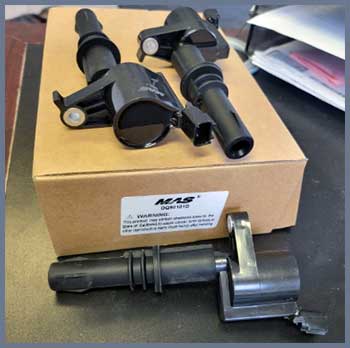
MAS is another aftermarket brand I came across, with coil sets priced similarly to ENA—around $90-$130 for eight.
Like ENA, MAS coils are designed for mainstream vehicles like Fords and Toyotas, and they come with a warranty (though MAS’s is typically one year, not lifetime).
Reviews suggest MAS coils are reliable for daily driving, but some users reported fitment issues or misfires in specific models, like certain Nissans.
I didn’t try MAS myself, but ENA’s perfect fitment on my F-150 and consistent performance gave it the edge.
If you’re choosing between the two, ENA’s longer warranty and broader positive feedback make it the safer bet.
Frequently Asked Questions (FAQ)
ENA coils are manufactured by Aceon-Bright, Inc., a company specializing in aftermarket automotive parts, including ignition coils and wire harnesses. They’re designed to meet TS16949 quality standards, which is a big deal in the auto industry, and they focus on providing affordable, high-quality components for North American vehicles like Fords and Hondas. While some suspect they’re made in China, the quality control and lifetime warranty make them a solid choice regardless of origin.
Off-brand coils like ENA can be a great option if you’re on a budget, but it’s a mixed bag. In my experience, ENA coils perform nearly as well as OEM brands like Motorcraft or Denso, with smooth idling and improved mileage. However, some off-brands suffer from inconsistent quality control, leading to early failures or misfires. Always check reviews and warranties—ENA’s lifetime warranty gives it an edge over other budget brands. If you can afford OEM, they’re safer, but off-brands can work well with proper research.
I haven’t personally used ECS ignition coils, but from what I’ve read on forums and review sites, they’re a decent aftermarket option, especially for European cars like BMWs and Audis. They’re priced similarly to ENA—around $20-$30 per coil—and users report good performance and easy installation. However, some mention shorter lifespans compared to Bosch or OEM brands. If your vehicle is compatible, ECS could be a solid budget choice, but ENA’s broader compatibility and warranty make it more appealing for mainstream vehicles.
TRQ is another budget-friendly brand, and while I haven’t tried their coils, they seem to have a decent reputation for affordability. Priced around $80-$120 for a set, they’re comparable to ENA in cost. Reviews are mixed—some users love their performance in vehicles like Jeeps and Chevys, while others report failures within a year. ENA’s lifetime warranty and my positive experience give it an edge, but TRQ could be worth a look if you’re shopping around and verify fitment for your car.
Why You Should Choose ENA Ignition Coils?
After a year of driving with ENA ignition coils, I’m sold. They’ve transformed my F-150 from a sputtering mess to a smooth, reliable ride without draining my wallet. The combination of affordability, easy installation, and solid performance makes them a no-brainer for anyone looking to fix ignition issues on a budget.
Sure, they might not last as long as a $600 set of Motorcraft coils, but with a lifetime warranty and thousands of happy users, ENA is a risk worth taking. Grab a set, follow my maintenance tips, and enjoy the ride.

